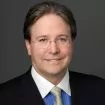On June 14, 2013, the United States Court of Appeals for the Federal Circuit, sitting en banc, issued its decision in Robert Bosch, LLC v. Pylon Manufacturing Corp.,1 holding that 28 U.S.C. § 1292(c)(2) confers jurisdiction on the court to entertain appeals from patent infringement liability determinations when a trial on damages has not yet occurred. Further, the court held that it may also entertain appeals from patent infringement liability determinations when willfulness issues remain undecided.
I. Background and Procedural History2
In August 2008, Robert Bosch, LLC ("Bosch") filed suit against Pylon Manufacturing Corp. ("Pylon") for patent infringement.3 Pylon filed a motion requesting that the district court bifurcate the issues of liability and damages, which the district court granted. Following a jury trial on the issue of liability and motions for judgment as a matter of law, the district court entered judgment on liability. Bosch appealed the district court's decision and Pylon cross-appealed. In response, Bosch filed a motion to dismiss both its own appeal and Pylon's, asserting that the Federal Circuit Court lacked the requisite jurisdiction. The court denied Bosch's motion to dismiss, as well as Bosch's motion for reconsideration.
The court heard arguments in July 2012 regarding both the substantive and jurisdictional issues of the case. After oral argument, the court sua sponte granted a rehearing en banc to determine whether it had jurisdiction over the appeal under § 1292(c)(2).
II. The Federal Circuit's En Banc Decision
The court identified two issues that prompted its sua sponte review. First, does § 1292(c)(2) confer jurisdiction on the Federal Circuit to entertain appeals from patent infringement liability determinations when a trial on damages has not yet occurred?4 Second, does § 1292(c)(2) confer jurisdiction on the Federal Circuit to entertain similar appeals when willfulness issues remain undecided?5 The court answered both questions in the affirmative.
Circuit Judge Prost, writing for the majority, began her inquiry by reviewing the evolution of § 1292(c)(2), which provides, in pertinent part:
The United States Court of Appeals for the Federal Circuit shall have exclusive jurisdiction - (2) of an appeal from a judgment in a civil action for patent infringement which would otherwise be appealable to the United States Court of Appeals for the Federal Circuit and is final except for an accounting.6
Accordingly, the court must determine whether a trial on damages and willfulness is an "accounting" within the meaning of the § 1292(c)(2) exception to the final judgment rule.7 Bosch asserted that an accounting under § 1292(c)(2) is limited to a determination of the infringer's profits and cannot be construed to include a jury trial on damages.8 Judge Prost and the majority disagreed, finding that the statute's interpretation throughout history clearly includes not only a traditional equitable accounting of an infringer's profits, but also a determination of damages. The court supported its conclusion with four points. First, in 1948, Congress expanded jurisdiction over interlocutory appeals to include patent infringement cases that were final except for an accounting. Second, issues historically decided in accountings are the same as those issues decided in modern damages trials. Third, the reasons articulated by Congress for allowing interlocutory appellate jurisdiction over patent cases that are final except for an accounting apply with equal force to a modern damages trial. Finally, the court indicated that stare decisis provided further support for its holding.9
The court underwent a similar analysis in holding that an "accounting" within the meaning of § 1292(c)(2) includes the determination of willfulness. Specifically, the court found that "long before the enactment of § 1292(c)(2)'s predecessor statute in 1927, accounting procedures included the determination of willfulness by a special master."10
The parties and the amici submitted arguments that the district court did not have the authority to bifurcate willfulness and infringement issues given the interwoven nature of both issues as doing so would deprive them of the Seventh Amendment right to a jury trial on damages - a procedure they attempted to distinguish from an accounting conducted by a special master. However, the court stated that it did not review the case sua sponte to "determine whether the issues of infringement and willfulness are so interwoven that trying them separately violates the Seventh Amendment."11 The majority underscored this point by concluding its opinion with a statement that district court judges have the discretion to bifurcate willfulness and damages issues from liability in patent cases.
III. Dissenting Opinion12
Judge O'Malley, joined by Judge Wallach, disagreed with the majority's broad reading of § 1292(c)(2). The dissent was of the view that a historical examination of the statute reveals a more limited class of proceedings that may be considered an "accounting." Specifically, the dissent stated that an accounting only includes instances where the trier of fact has decided all matters relevant to the determination of damages but has yet to reach a numerical value. The dissent also disagreed with the majority's holding that an outstanding determination of willfulness does not preclude the court from hearing an appeal regarding patent infringement liability, as the underlying finding itself is not about numbers.13
IV. Significance of the Decision
The Federal Circuit's opinion in Bosch clarifies that a patent litigant may appeal determinations of patent infringement liability while awaiting a bifurcated jury trial on damages, as damages are considered an "accounting" within the meaning of the § 1292(c)(2) exception to the final judgment rule. As a result, district courts may find fewer patent cases reaching the issue of damages as parties seek bifurcation of liability and damages issues with clear knowledge that they may appeal the issues separately. Further, litigants may feel they are under greater pressure to reach a settlement rather than face the potential of one or more appeals in bifurcated trials.
Footnotes
1 2013 WL 2664281 (Fed. Cir. 2013) (en banc) available at http://www.cafc.uscourts.gov/images/stories/opinions-orders/11- 1363.Opinion.6-11-2013.1.PDF (the "Opinion").
2 The factual background is summarized from the background set forth in the Court's opinion.
3 Pylon later asserted counterclaims for patent infringement against Bosch. Opinion at 4.
4 Opinion at 3.
5 Id.
6 28 U.S.C. § 1292(c)(2) (emphasis added).
7 "Under the final judgment rule, a party may not take an appeal ۆuntil there has been a decision by the district court that ends the litigation on the merits and leaves nothing for the court to do but execute the judgment.'" Opinion at 5 (quoting Firestone Tire & Rubber Co. v. Risjord, 449 U.S. 368, 373 (1981)).
8 Opinion at 5.
9 Id. at 13-14.
10 Id. at 23.
11 Id. at 22 (stating that "[b]ifurcation and Seventh Amendment issues are immaterial to this [appeal].").
12 Circuit Judges Moore and Reyna wrote separate opinions agreeing with the majority's determination that § 1292(c)(2) confers jurisdiction on the court to entertain an appeal while issues of damages remain outstanding. However, both Judge Moore and Judge Reyna disagreed with the majority's conclusion that an "accounting" under § 1292(c)(2) includes a determination of willfulness.
13 The dissent also disagreed with the majority's refusal to address the issue of bifurcation and the Seventh Amendment. In the dissent's view, a bifurcation order requiring two separate juries to examine overlapping facts would violate the Seventh Amendment right to a jury trial. J. O'Malley Dissenting Op. at 32-33.
The content of this article is intended to provide a general guide to the subject matter. Specialist advice should be sought about your specific circumstances.



